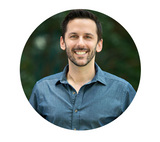Want to Improve Mental Health? Awareness is the Key.
Awareness is the first and most essential step we must take before we can begin to improve mental health. And you’re already here, which is a great start. As a licensed psychotherapist, many of my patients feel stuck, and a great deal of work goes into getting them unstuck.
I will be sharing more content throughout the month to help normalize the conversation about mental health. Stay tuned for help with the following topics:
- What is Catastrophic Thinking?
- What is Emotional Regulation?
- What are Self-referential Thoughts?
- What is Black and White Thinking?
But if you’re here now...
that means you are already moving, that means there’s already some awareness that you need some support, and more than anything, that means you understand the connection between thinking better and feeling better.
Before we go any further, take a second to recognize that effort. For some, this step can take years. But please understand, you’ve taken the first, and most difficult step. You are curious, and you are aware that things can, and do get better.
If you need to talk to someone right now, you are not alone. Here are some resources:
- National Alliance on Mental Illness (NAMI) 800-950-NAMI
- 24 hours National Suicide Prevention Lifeline 800-273-TALK
- 24/7 support via text: Crisis Text Line 741741
Therapy can be upbeat and laid back.
Hi, my name is Daniel Epstein. I am a licensed psychotherapist and Komuso cofounder. I helped Todd and Vanessa design the Shift to reduce anxiety by slowing the exhale. I also helped write Rotezen, our guided journal.
I have over a decade of experience in crisis intervention, young-adult mental health, and addiction treatment. I combine cognitive behavioral therapy, mindfulness-based cognitive therapy, and dialectical behavioral therapy to help my clients enhance their peace of mind. I strive to create upbeat and laid back sessions, and my favorite complement, other than the laughs, is that a session with me doesn’t feel like therapy.
I work from a solution-focused approach that centers on the person, not the problem, where I help my clients create clear goals and wellness-based outcomes.
I imagine you are…
I imagine you’ve been worried about your own mental health or the mental health of a loved one, and are looking for some solutions and guidance.
I imagine you are concerned about self-esteem, or you want to improve communication in relationships, or you are experiencing anxious and depressive symptoms and know you need help overcoming these feelings.
I imagine you’ve been searching for answers and relief from some of this stress and strain for a while now.
I’d like to start by saying you are not alone.
Everyone struggles with maintaining mental health at some point. I see a lot of people struggle with mental health, and I know there are many more out there struggling with taking this first step. I can tell you the first step is the hardest, and I can tell you that each step gets easier because you begin to feel better.
I see you, and I’m glad you’re here.

May is Mental Health Awareness Month
As a brand, we want to contribute to improving mental health.
When we first started Komuso, our goal was simple: help people breathe better to feel better. But a crucial step in the success of this journey is the thinking stage. We must breathe better to think better, which then allows us to feel better.
How are you really feeling? Oftentimes, the shorter the answer, the harder it is to put into words how we’re really feeling. Mental Health Awareness month presents a chance for us to have a conversation.
Let’s use this opportunity to speak up, to share, to be there for each other. Especially now, right now, everyone has something they’d like to talk about. Let’s use this May as a way to scrap all the worry and self-consciousness and be there for each other. Let’s tell our family and friends we’re here for them.
Let’s start with, “I’m here. Just talk. I’ll listen.”
Rotezen: Journaling, Micro-Adjustments & Mental Health
I helped create Rotezen, our guide to micro-adjustment and meaningful, lasting change. In this journal, we incorporated many of the lessons and thought starters and techniques I help my clients through.
In Rotezen, you’ll find 13 sections I co-wrote with the Komuso team. Each section aligns with the theme of the journal interval, and speaks to the professional help and advice I discuss with my patients every day.

These sections have proven helpful for my clients over the years, and I believe they can help you jumpstart a change you’ve been considering too.
All it takes is a little momentum. One small change at a time, and you will begin to see bigger changes take place. But more importantly, you will begin to think better and feel better.
Mental Health Content Series: Ask me anything.
I will be creating videos for Komuso all month long on the topics below. Beyond that, we will continue to create on-going content designed to help you think better and feel better.
In the meantime, what questions do you have? Send us an email or respond to our social posts with your questions. I’ll answer them in the upcoming videos, and potential live streams.
What is Catastrophic Thinking?
- What is it?
- Why does it happen?
- Problem and solution
- How to get started?
- What does the future look like?
What is Emotional Regulation?
- What is it?
- Why does it happen?
- Problem and solution
- How to get started?
- What does the future look like?
What are Self-referential Thoughts
- What is it?
- Why does it happen?
- Problem and solution
- How to get started?
- What does the future look like?
What is Black and White Thinking?
- What is it?
- Why does it happen?
- Problem and solution

Daniel Epstein, Licensed Psychotherapist
